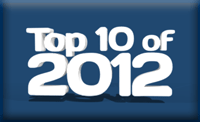iPhones & iPads: A Medical Liability?


By Ken Congdon, editor in chief, Health IT Outcomes
Studies have shown that texting while driving is worse than driving drunk. The act takes a driver’s focus away from the road and severely impairs reaction times. Well, a recent story from NPR and Kaiser Health News (KHN) suggests that the use of smartphones and tablets in healthcare settings can distract clinicians in a similar fashion, and these distractions can have a potentially catastrophic impact on patient care.
It’s important to note that most of the distractions mentioned in the NPR/KHN story are a result of the BYOD (bring your own device) phenomenon — a trend where physicians use their personal smartphones or tablets on the job. When this strategy is deployed, the lines between a doctor’s professional and private lives can become blurred. In other words, the physician can easily become distracted by a barrage of text messages, emails, Facebook notifications, tweets, and other personal communications that automatically pop up on the screen. In fact, the NPR/KHN story references an actual event involving a female resident on rounds and a 56 year-old patient admitted to have a feeding tube replaced. The resident noticed that the patient was on a blood thinner and decided to enter an order to stop this drug via her smartphone. However, during the order entry process, the resident received a text about a party. She became so consumed about RSVP-ing that she never completed the order. The patient nearly died as a result of the oversight.
Granted, the resident’s actions are probably more to blame in the above-mentioned scenario than the technology. One could also argue that a nurse, coworker, or overhead page could have distracted the resident just as easily, leading to a similar oversight. However, this case study illustrates how a technology intended to make clinicians more productive and improve patient care actually proved to be a harmful distraction. This is a development too important to overlook.
Minimize Mobile Distractions
So what’s the solution to this potentially life-threatening problem? Should mobile devices be banned in clinical settings? Of course not. The clinical advantages of mobile computers and smartphones far outweigh the disadvantages. They make physicians more productive, enhance patient interactions, and provide doctors with a means to make informed treatment decisions while at the patient bedside, on the move, or at home. When mobile devices incorporate clinical decision support applications, they become even more powerful. Automated alerts can pop up on the screen, notifying physicians of possible adverse drug interactions, alternate diagnoses, or other potentially life-saving information.
The focus from a health IT perspective shouldn’t be on removing mobile technology, but controlling it better — particularly where physicians’ personal devices are involved. Some hospitals simply refuse to allow personal devices to access corporate networks and applications. However, as the demand to BYOD to work grows in the physician community, this stance can become harder and harder to enforce. The best course of action is to implement strict policies advising doctors how to use their personal mobile devices at work in an effort to minimize distractions. For example, you could require physicians to disable the automatic text, email, Facebook, Twitter, and other personal alerts on their smartphones or tablets while at work. You may also want to investigate some software products that actually allow users to separate the personal and professional functions of mobile devices. RIM’s BlackBerry Balance, AT&T’s Toggle, and VMWare’s Mobile Virtualization Platform are just a few examples of software that provides this capability. By requiring your physicians to install this software on their personal devices, you can help to minimize the personal distractions they may encounter on the job.
